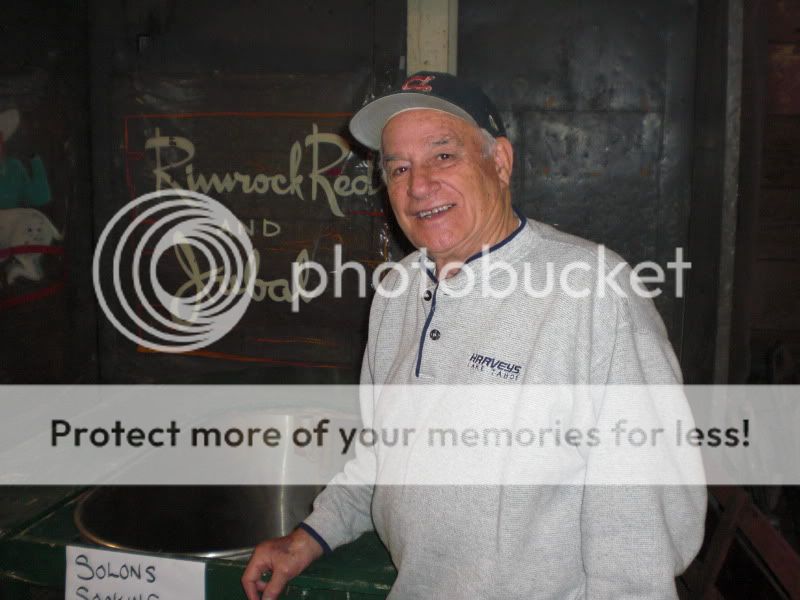I just got an email from a fellow named Matt, regarding my stories on former Sacramento Solons owner Fred David, who died in October at 100 and whose estate was just liquidated. Matt wanted to know if he could see the interview I did with David in 2001 for my high school senior project.
David gave me a tour of his warehouse, where he stored memorabilia he recovered after the Solons’ ballpark, Edmonds Field, was torn down in 1964. Prior to the tour, I provided David a list of written questions, which I still have (Editor’s note: It’s not for sale, though I will happily provide photocopies to anyone who sends me a stamped, addressed envelope.)
Thus, here is the interview:
1. For approximately how long were you an owner of the Sacramento Solons?
1944 Stockholder- 1954- President of Sacramento Baseball assn. 1964 Sold Edmonds Field
2. How much did it cost to buy the team?
Started with $1,000.00 to keep baseball in Sacramento.
3. Why did you buy the Solons?
To keep baseball in Sacramento, of course with the help of the directors, associates and fans.
4. You obviously had to sell a lot of players to the major leagues to stay afloat financially. At the same time, the amount of fans you drew depended on how good your players were (David wrote “Right. Right,” next to both of these lines.) How did you deal with your financial dilemnas?
Borrow and Sell. We had good players, good baseball, too much Major League.
5. I understand the Solons have been affiliated with the St. Louis Cardinals, Milwaukee Brewers and Texas Rangers. Did you maintain any formal “parental” agreement with any team during your tenure?
No. We had to sell many good players to the Major Leagues to stay afloat.
6. Describe the working relationship you had with your general manager Dave Kelley.
Very good.
7. How well did you pay your players in comparison to other Coast League owners?
Fairly well, considering the attendance.
8. What was your total payroll for 1954?
N/A
9. How did you get along with other Coast League owners?
Very good.
10. Was there any kind of stigma attached to Sacramento as a baseball town, since it was so small?
Oakland and San Francisco was new Major League out west. Sacto was too small.
11. Were you apart of any effort to help get the PCL recognized as part of the Major League?
Yes, we were Open Classification shooting for the Majors. When the Majors came west, we dropped to AAA
12. What were the fans like? Were attendance figures consistently good, consistently bad or sporadic?
Bad. We let another group call Solons Inc to operate the team for two years, we rented them the stadium for $15,000.00 per year. They went bankrupt.
13. How big was the level of public interest in the Solons?
At first fair, then, they wanted Major League.
14. What kind of perks did you enjoy as an owner?
A lot of work– no pay. But, we kept baseball going & some fun, with good times.
15. Were you friends with any players during your tenure?
Yes managers and players. Some came to work for me. Besides other athletes.
16. Was Edmonds Field a fitting place for baseball in Sacramento?
Very much so. Lots of players were developed here.
17. Did you support or root for the Solons before the time that you owned them?
Yes, also at times I worked in the concession in the lobby when I was fifteen years old.
18. What’s your favorite memory from the time you owned the Solons?
We kept baseball going for 20 years. 1944-1964, good times and bad.
19. When you bought the Solons in 1954, did you think that Major League baseball would make it to the West Coast? (David wrote “Yes” next to this) On the other hand, did you feel that the Pacific Coast League was a major league in its own right?
Yes, the weak ones were Sacramento & Portland. As you can see all other 6 teams are Major L. now.
20. Did the Korean War affect the Solons at all?
Yes, it took some of our best players.
21. What drove you out of being an owner? When did you officially sell?
Poor attendance. The team in 1960-61. Stadium 1964.
22. How did you feel in the spring of 1961, when the Solons finally departed for Hawaii, after two years of rumors that they’d leave? Did you personally try to stop the move?
They sold the team to Hawaii, before we knew it. Left us an empty stadium.
23. Why do you still have so much memorabilia from Edmonds Field?
After we sold the stadium, I salvaged what I could. It was a great memory.
24. Why do think it took so long for baseball to return to Sacramento?
Major Leagues out west. Then after 1965– no stadium. It took 30 years for someone to decide it was time– including the growth of Sacto.
25. How different is the candy industry from the baseball industry?
Business is business– work. But I loved baseball. I guess I was a good fan.
26. Are you a Rivercats fan?
Yes.
